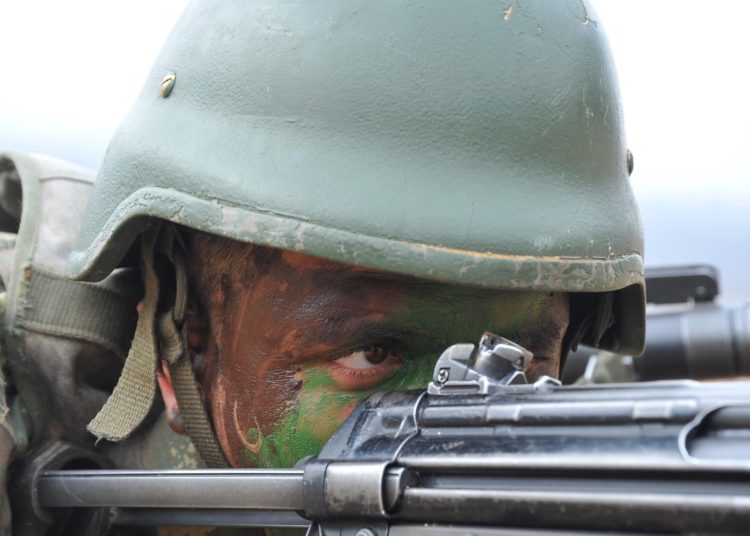Abdullah Bozkurt
Turkey’s spy agency managed to get rid of police checkpoints on roads when it was transporting jihadists for armed training programs, a former special operations officer revealed in court.
According to Turgay Perişan, a chief sergeant in the elite Special Forces Command, the agency kept the police away from the roads during the transportation of fighters and arms. “Police were driven away from the checkpoints that monitor the roads we use,” he told an Ankara high criminal court on December 7, 2017.
He was assigned to a training program for Syrian fighters that was run by the National Intelligence Organization (Milli İstihbarat Teşkilatı, or MIT). The spy agency was coordinating the recruitment of fighters from Syria or refugee camps in Turkey, and the Turkish army was providing logistics, and training.
Turgay Perişan explains how the intelligence agency pulled police back from checkpoints when transporting Syrian fighters:
Completing Arabic language training in the spring of 2015, Perişan was assigned to work with the training programs for Syrians in coordination with MIT in June 2015. He moved around the border provinces of Kilis, Adana and Hatay, crossing into Syria at times and coming back to Incirlik Air Base in Adana, where Turkish and US-led coalition forces were deployed. The central province of Kırşehir, where a training camp was maintained by the military, was another key point for Perişan.
The arms and logistics were provided from stockpiles maintained by the US military at Incirlik Air Base. From time to time supplies were brought in by US cargo planes that landed at the base.
“Our operations were run very secretly, and assignments were monitored personally by Yaşar Güler, deputy chief of General Staff,” Perişan testified. He worked on this program until February 2016.
MIT was afraid of being exposed if the transportation of fighters hit a snag at a checkpoint after the scandalous revelations of January 2014. Trucks carrying illegal arms to jihadists in Syria were intercepted twice by the police in a border province on January 1 and January 19, 2014, while two busses that took fighters from an al-Qaeda-controlled area in Syria and brought them back to Turkey under the watch of MIT agents were the subject of a criminal investigation by the local prosecutor.

After hushing up terrorism investigations into MIT’s illegal operations in border provinces, the government of Recep Tayyip Erdoğan had to amend intelligence legislation, providing MIT operatives broader immunity from criminal procedures. The government also sacked all the police chiefs in the border area and replaced them with partisans to keep clandestine operations away from the scrutiny of members of law enforcement agencies and the judiciary.
Turgay Perişan operated in northern Iraq:
Perişan also operated in the northern Iraqi cities of Zakho, Duhok and Sulaymaniyah, provided security during a meeting between Kurdish leaders and Hakan Fidan, the head of MIT, and then-Deputy Foreign Minister Feridun Sinirlioğlu. Both Fidan and Sinirlioğlu were part of a delegation led by Prime Minister Ahmet Davutoğlu, who announced a training program for peshmerga forces during a joint news conference with Massoud Barzani, president of the Kurdistan Regional Government (KRG) in Erbil. Turkey was under growing criticism at the time for not supporting the efforts of the US-led coalition against the Islamic State in Iraq and Syria (ISIS).
In February 2016 he was deployed to Qatar for advanced Arabic language training. He returned to Turkey a few months later. On July 15, 2016 he was ordered to join a special operations team that was deployed to protect General Staff headquarters due to a terrorist threat. He found himself framed in a false flag coup plot and was jailed the next day on charges of attempting to overthrow the Erdoğan government. He was tortured and abused for over a week. When he finally had the chance to tell his story in court, he explained what he had done before as a special forces member.













